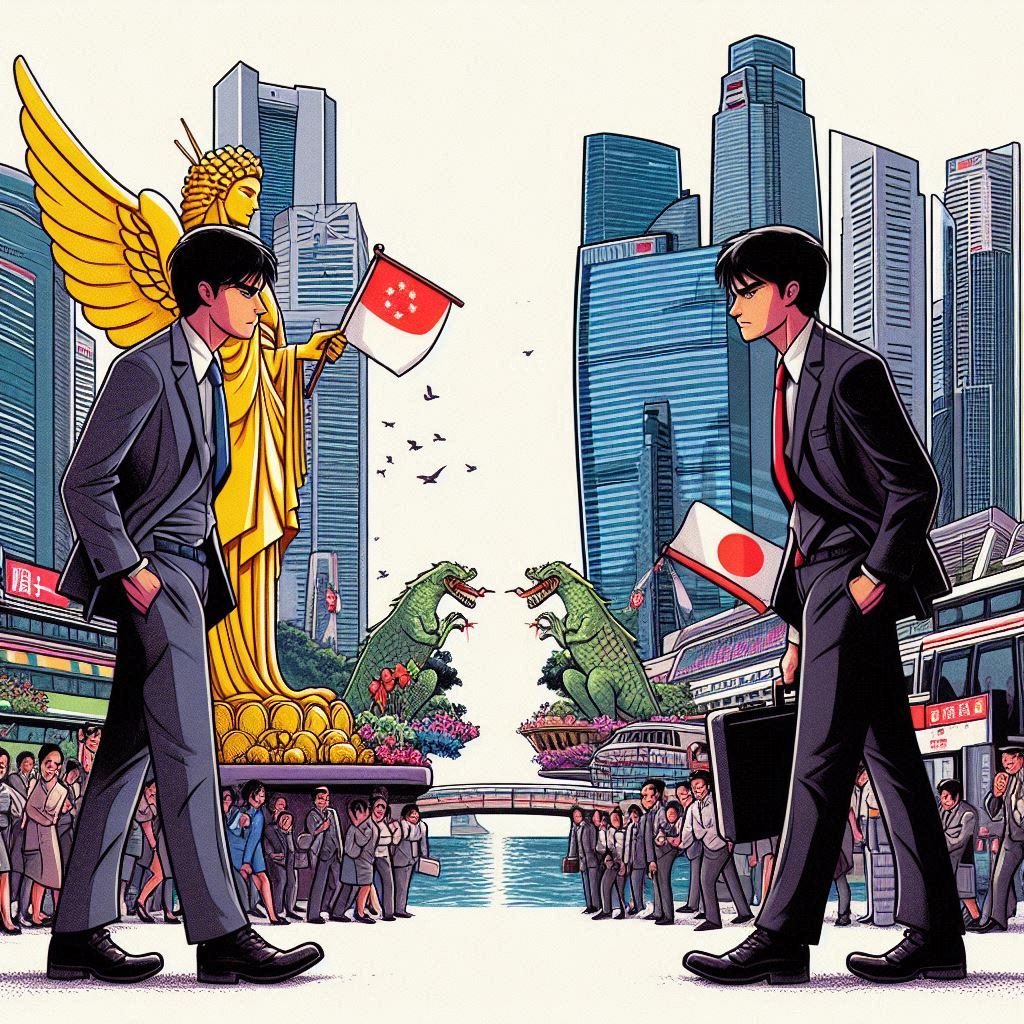For decades, Singapore and Tokyo (Japan) have consistently topped the list of preferred destinations for affluent families seeking educational relocation. Both cities are renowned for their exceptional safety, robust offerings of international schools, and family-oriented living environments.
However, in recent years, Tokyo has begun to ascend rapidly in status. Particularly among Asia’s wealthy circles, a quiet but noteworthy shift is underway: more families are opting to pivot from Singapore to Tokyo.
This article offers a comparative perspective on this emerging trend, examining four essential pillars that drive the decision-making process for discerning families:
-
Education
-
Lifestyle
-
Cost Efficiency
-
Future Prospects
■ 1. Educational Freedom and Emotional Space: A Comparative Insight
One of the most profound distinctions between Singapore and Tokyo in the context of educational migration lies in their fundamental philosophies toward learning and child development.
Singapore’s education system is known for its rigorous structure and early academic streaming. From upper elementary levels, students are placed on specific academic tracks based on standardized test performance. This meritocratic framework fosters a high-pressure, competitive atmosphere.
In contrast, Tokyo embraces an educational ethos centered around collective growth and the nurturing of well-rounded individuals.
-
Many international and private schools in Tokyo prioritize process-based evaluations over test scores.
-
The curriculum is enriched with independent research projects and creative learning experiences.
-
There is a strong emphasis on developing non-cognitive skills—such as etiquette, life skills, empathy, and teamwork—woven naturally into daily school life.
As a result, Tokyo offers a learning environment where children are not merely trained for exams, but are cultivated as individuals.
■ 2. The Real Cost of Living: A Financial Comparison Between Singapore and Tokyo
| Expense Category | Singapore | Tokyo |
|---|---|---|
| International School Tuition (Annual) | Approx. ¥3.5M–¥6M | Approx. ¥2M–¥3.5M |
| Family-Oriented Housing (Monthly Rent) | ¥300K–¥500K (Central Locations) | ¥250K–¥450K (Minato, Shibuya Wards) |
| Food Costs | High-cost, dining out culture | Comparatively affordable with a strong home-cooked tradition |
| Healthcare | Full-cost burden for foreigners, often expensive | Broad coverage through national health insurance system |
For families with two or more children, Tokyo can yield significant cost savings over the medium to long term. Tokyo distinguishes itself as a city that offers long-term continuity and support for family life, thanks to its robust healthcare infrastructure and comprehensive childcare systems.

■ 3. Cultural and Social Stress: A Significant Differentiator
Singapore’s reputation for being immaculately clean, highly efficient, and rule-oriented is well deserved. However, this very structure can translate into a rigid, compliance-driven environment.
Tokyo, by contrast, offers a rare blend of social order and cultural flexibility:
-
There is a prevailing ethos of accepting diversity among peers, encouraging children to embrace individuality.
-
Mistakes and delays are met with social understanding.
-
An increasing number of schools promote a philosophy where “there is no single correct answer”.
This environment creates emotional room to explore, to fail, and to grow—a foundation upon which creativity and self-assurance can flourish.
■ 4. Future Pathways and Potential
When it comes to university admissions, both Singapore and Tokyo demonstrate strong track records in placing students into elite global institutions. However, Tokyo offers a strategically superior blend of academic, legal, and regional advantages that align with the evolving needs of globally mobile families.
-
Dual-path university access: Tokyo offers access to Japan’s top-tier institutions—such as the University of Tokyo, Keio, and Waseda—while also supporting pathways to international universities.
-
Residency and visa advantages: Japan provides relatively smoother routes to long-term residency and eventual permanent settlement.
-
Bilingual capability as a regional lever: With a growing emphasis on Japanese-English bilingual education, students gain the linguistic and cultural fluency needed to thrive not only in Japan but across the broader Asia-Pacific region.
Positioning your child’s educational foundation in Tokyo is not merely a tactical academic decision—it is an investment in regional influence, lifestyle optionality, and long-term stability.

■ The Enduring Value of a “Tokyo Education” for High-Net-Worth Families
-
Hong Kong-based Entrepreneur, Father of Two:
“Tokyo is quieter and more culturally nuanced than Singapore. My children have become noticeably more calm and centered.” -
Thai Medical Couple:
“We deeply appreciate Tokyo’s approach, where the emphasis isn’t solely on test scores, but on nurturing qualities like attentive listening.” -
Malaysian Investor:
“Compared to Singapore, Tokyo gives our children a greater sense of freedom—and that shows in their curiosity and confidence.”
■ Competition or Growth—Which Future Will You Choose for Your Child?
Singapore is undeniably one of the world’s most “efficient” education hubs.
Tokyo, on the other hand, offers something more profound: a city where education is centered on raising thoughtful, well-rounded human beings.
The decision ultimately lies in a parent’s educational philosophy.
If you believe in gifting your child a future that cannot be measured solely by numbers—a life rooted in emotional intelligence, cultural depth, and personal growth—then Tokyo may be the city that brings that vision to life.




